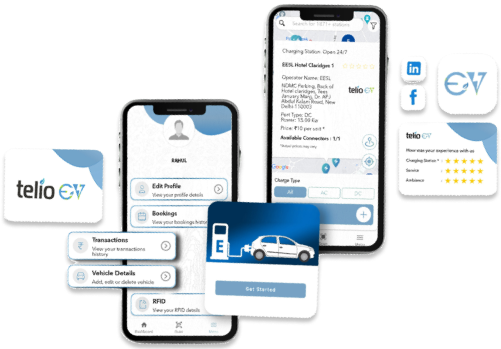Enhancing Electric Vehicle Charging with Advanced Management Software

The rapid adoption of electric vehicles (EVs) has required the advancement of effective and easy to use charging solutions. Central to this development are Electric Vehicle Charging Management Software (EV CMS) and EV Charging Apps, which enhance the charging process for both operators and users.
Understanding EV Charging Management Software
EV Charging Management Software functions as an extensive platform that enables Charge Point Operators (CPOs) and other stakeholders to monitor, manage, and optimize EV charging stations. Key functionalities include real-time tracking of charging stations, user authentication, payment processing, and energy management. By incorporating these functions, the software guarantees efficient operation and boosts the user experience.
Key Features of EV Charging Management Software
1. Real-Time Monitoring and Control: Operators can manage the status of charging stations, track energy usage, and address problems quickly.
2. User Authentication and Access Control: The software manages user access, guaranteeing that only authorized individuals can utilize the charging centers.
3. Payment Processing: It helps with seamless transactions, supporting numerous payment techniques to accommodate diverse user choices.
4. Energy Management: By optimizing energy distribution, the software decreases functional expenses and supports grid stability.
5. Reporting and Analytics: Comprehensive data analysis help in notified decision-making and strategic preparation for network expansion.
The Role of EV Charging Apps
EV Charging Apps are designed to supply EV owners with practical access to charging infrastructure. These applications use features such as finding close-by charging stations, real-time availability updates, navigation help, and remote monitoring of charging sessions. By enhancing availability and user engagement, these OCPI apps play an essential function in promoting the adoption of electric vehicles.
Combination with Open Charge Point Interface (OCPI)
The Open Charge Point Interface (OCPI) is a standardized protocol that helps with interoperability between various EV charging networks. Integration with OCPI enables seamless roaming, making it possible for users to access numerous charging networks with a single account. This interoperability enhances user benefit and expands the ease of access of charging infrastructure.
Advantages of Implementing Advanced Charging Solutions
- Enhanced User Experience: User-friendly user interfaces and reputable services increase customer complete satisfaction and commitment.
- Operational Efficiency: Automation and real-time monitoring lower manual intervention, lowering functional costs.
- Scalability: Advanced software solutions support the expansion of charging networks to fulfill growing demand.
- Revenue Generation: Flexible prices models and effective payment processing open new income streams for operators.
Conclusion
The combination of EV Charging Management Software and user-centric EV Charging Apps is pivotal ahead of time the electric vehicle environment. These technologies not only simplify operations for service providers but likewise substantially enhance the charging experience for users. As the EV market continues to grow, the adoption of such sophisticated solutions will contribute in meeting the increasing demand for effective and available charging infrastructure.